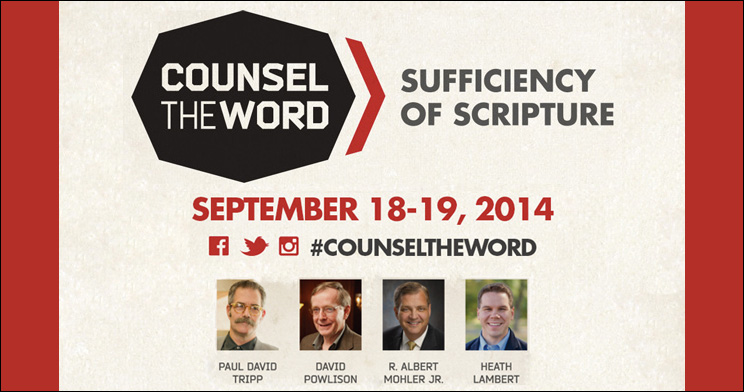Part 2 – Mental Illness and the Healing of Jesus | Can Jesus heal mental illness?
The following post is part two in a series of posts titled: Can Jesus heal mental illness? by Heath Lambert. You can read part one here. “Mental illnesses” are spiritual issues In my previous post I tried to demonstrate that mental illness is not a concrete object like a wheelbarrow, but is an abstract…
The following post is part two in a series of posts titled: Can Jesus heal mental illness? by Heath Lambert. You can read part one here.
“Mental illnesses” are spiritual issues
In my previous post I tried to demonstrate that mental illness is not a concrete object like a wheelbarrow, but is an abstract idea like friendship. A concrete object is what it is. An abstract idea is open to interpretation and definition by the worldview commitments of the person describing the idea. Secular psychologists have a terrible time defining mental illness, but usually relate it to behavior that is unusual and suggest some kind of medical intervention to deal with it.
Christians ought to understand mental illness in terms of spiritual issues. If mental illnesses are spiritual issues then we need to ask whether Jesus can bring healing to these things.
The Bible, healing, and spiritual issues
The question is important because we often think of healing with respect to physical issues like a broken bone or Lou Gehrig’s disease. On the other hand, the Bible does not limit healing to physical issues. Scripture talks about healing with respect to spiritual matters as well.
The LORD builds up Jerusalem; he gathers the outcasts of Israel. He heals the brokenhearted and binds up their wounds. (Psalm 147:2-3)
There is one whose rash words are like sword thrusts, but the tongue of the wise brings healing. (Proverbs 12:18)
Make the heart of this people dull, and their ears heavy, and blind their eyes; lest they see with their eyes, and hear with their ears, and understand with their hearts, and turn and be healed. (Isaiah 6:10)
Related: Join Heath Lambert at the Counsel The Word conference at Southern Seminary September 18-19. Early registration deadline is June 20th
These are a few examples. There are many more (Pss 30:1-3, 107:19-20; Prov 13:17, 29:1; Isa 53:5, 57:18; Jer 15:18; Hos 6:1—and more!). God is actually rather fond of using healing language in a poetic way to refer to God’s restoration of our sins and sufferings.
Healing language in a mental illness culture
On the authority of Scripture Believers can talk about Jesus healing spiritual issues that our culture often calls mental illness. But this makes some people nervous. They think if we use the language of healing for mental illnesses we give credence to a secular view that sees spiritual problems as physical in nature.
I understand that concern, and actually share it. In fact, I used to avoid the language of healing with regard to spiritual issues for the same reason. Then I grew in my understanding of the authority and sufficiency of Scripture. The authority and sufficiency of Scripture means that we must not allow secular psychology to have the role of determining how we speak about the counseling problems people face or their solutions. God gets to decide how we refer to the issues people face in their lives, not psychology. If we refuse ever to use the language of healing for spiritual matters, we’re guilty of the same kind of rejection of the sufficiency of Scripture as those who insist on referring to teenage rebellion as obstinate defiant disorder. Neither person is using God’s language to describe problems and solutions.
Healing in christ alone
When it comes to mental illness the professionals disagree on a definition, and most laypeople really have no idea what they’re talking about. If Christians are going to use the language to engage unbelievers and uninformed Christians in a conversation, we need to carefully explain that mental illness is atheistic language for problems that have to do with life lived before the God of heaven and earth. We need to further explain that it is Jesus alone who can deal with these problems.
Related: Balancing family and ministry
Jesus really can heal these problems. In fact, his is the only healing available. Our culture believes that mental illnesses point to biology and require medical intervention. Those of us in the biblical counseling movement are the only ones who know that the construct of mental illness actually has to with problems of the heart and require the gospel of God’s grace for healing.
It is we biblical counselors who understand that secular psychology heals the wounds of God’s people lightly (Jeremiah 6:14). In a culture of mental illness we must be the people who point to Jesus who bore our sins in his body on the tree, that we might die to sin and live to righteousness. By his wounds you have been healed (1 Peter 2:24).
__________
Heath Lambert serves as assistant professor of biblical counseling as well as the department coordinator of biblical counseling at Southern Seminary and Boyce College. In addition Dr. Lambert serves as Executive Director of the Association of Certified Biblical Counselors. He has authored several books including FinallyFree: Fighting for Purity with the Power of Grace (Zondervan), The Biblical Counseling Movement After Adams (Crossway), and the editor (with Stuart Scott) of Counseling the Hard Cases: True Stories Illustrating the Sufficiency of God’s Resources in Scripture (B&H). You can connect with Dr. Lambert on Twitter and Facebook. This article was originally published on the ACBC blog. (Used with permission)



